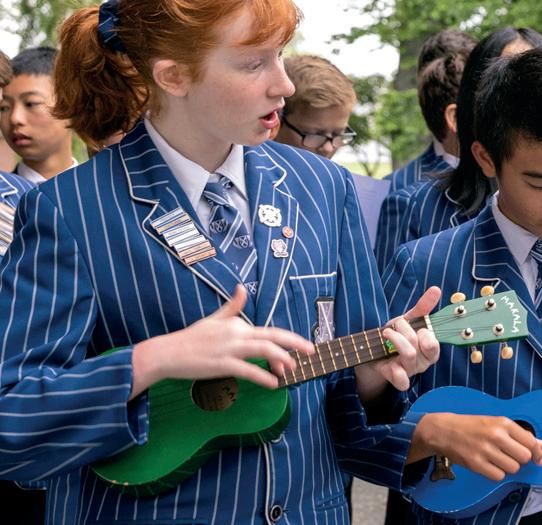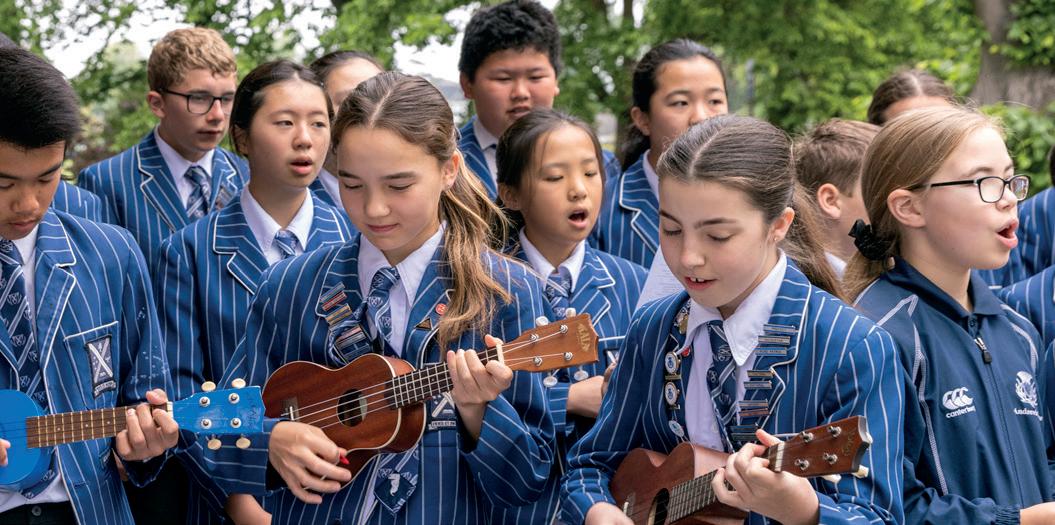
2 minute read
Well-being and Pastoral Care
Looking after the well-being of our students is a vital part of the school day. The Preparatory School has made a deliberate decision to continue to offer one teacher to one class of children. This is counter to the current trend in New Zealand state schools whereby two or more classes and teachers are together in one large teaching space. It is this conscious decision which allows our classroom teachers to develop an in-depth understanding and empathy for the small group of students in their care.
The 2020 external review of our Pastoral Care and Discipline Systems led to a range of changes in this area across 2021. Of most significance was the introduction of StAC-UP. StAC-UP incorporates explicit expectations for students and is underpinned by the College Values of Truth, Excellence, Faith, Inclusivity and Creativity. It provides clear pathways and protocols for any behavioural issues that occur and includes Restorative Practice. The Restorative process is a way of building, maintaining, restoring, and sustaining relationships and is dependent upon a social climate that is reparative rather than punitive. Restorative practice in schools puts into action a philosophy that places respectful relationships at the heart of the educational experience. Restorative practice operates as a continuum within the school from low level everyday interactions students and teachers have with one another, to highend conferencing around more serious misconduct. StAC-UP comes with a Steps of Consequence Policy which provides clear guidelines around each step. The policy was implemented on several occasions during 2021 and has led to an environment where students know and understand the boundaries and feel safe at school. Areas identified by staff as working particularly well have included: • sharing of difficulties between staff; • students learning to define behaviours; • consistency amongst staff in expectations and managing behaviour; • students feel heard and are experiencing better peer relationships; • StAC values and StAC-UP expectations are becoming a common language.
Also of significance in 2021 was the increase of counselling hours in the Preparatory School and the appointment of a second-full time counsellor, Mike Coleman. Through the increased hours available, the Pastoral team was able to

offer help and support to more students going through difficult times and suffering from anxiety. The range of scenarios and difficulties encountered by the counselling team was varied and reflected the uncertainty and stressful nature of 2021 in the COVID-19 environment.
The team also facilitated and helped run a Clubs Programme including Minecraft, Chess, Book Club, Crafts, and Lego. Clubs provided students with a more diverse range of options for breaktimes. Term 4 saw the addition of a 24/7 Youth worker to the team. Katrina Setacci was a valuable addition, and we look forward to her continued work and mentoring of students in 2022.
Utilising our in-house counselling team has been useful to further develop our staff’s understanding of current trends in student behaviour. Professional Learning around this topic focused particularly on online behaviours. Staff had the benefit of attending a College-wide session run by Kate Whitaker from the Office of Film and Literature Classification. The session dealt with research on pornography and the implications for educators.
The Chaplaincy and Well-being teams continued to provide support and development for staff in understanding their own well-being and managing the complexities of work and home life in the 21st century. The College also continued to provide the services of Workplace Support who provide independent employee assistance in addressing personal and work-related issues.








